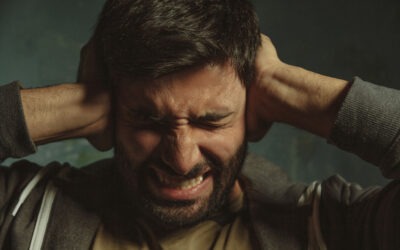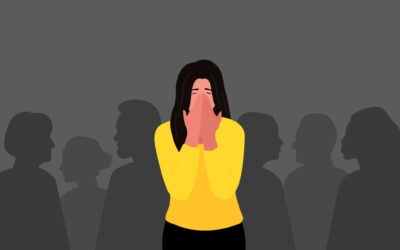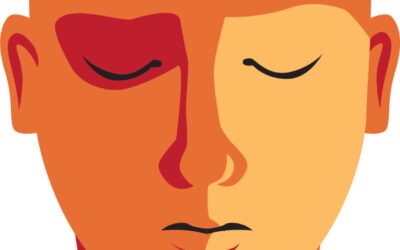
A persistent sense of emptiness, sorrow or an inability to experience the pleasure that may seem to occur for no apparent reason is known as depression. It is quite different from general sadness or grief as it lingers on for a prolonged period of time. It may result in severe symptoms that interfere with your ability to function on a daily basis, including sleeping, eating, and working. No matter what their age, colour, income, culture, or level of education is, it is a disease that can impact everyone.
No matter how similar sadness, grief and depression may appear to be from the outside, the feelings and emotions developing after tragic incidents are very different from depression. Grief normally does not involve self-hatred or a loss of self-esteem, although depression frequently does. Positive feelings and joyful recollections of the deceased frequently go hand in hand with emotional suffering while someone is grieving. The melancholy is persistent in major depressive disorder.
Depression manifests itself differently for each person. Your everyday tasks could be hampered, resulting in lost time and decreased production. Relationships and some chronic medical disorders may also be affected.
It’s critical to understand that experiencing sadness occasionally is a natural aspect of life. Everyone experiences sad and disturbing things in life. But if you frequently feel depressed or hopeless, you may be suffering from depression. Without the right care, depression is regarded as a dangerous medical illness that might worsen with time. Other mental problems and physical conditions like diabetes, cancer, heart disease, and chronic pain can coexist with depression. Both depression and these illnesses might worsen each other.
Let’s categorise the concept into easy-to-grasp sections for more clarity.
Causes
There are numerous potential reasons, and symptoms can occasionally be brought on by a combination of different events. The following elements are likely to be significant:
- Environmental elements, such as trauma exposure or a lack of social support
- Genetic characteristics
- Modifications in the brain’s neurotransmitter levels
- Other illnesses, such as bipolar disorder, caused by psychological and social variables
The risk of depression may increase due to interactions between numerous factors. For instance, a person with a family history of depression or a genetic predisposition to the disorder may experience depression after a distressing occurrence.
Risk elements that might result in depression consist of a few situations- enduring specific life events, such as a death in the family, difficulty at work, relationship changes, financial difficulties, and health issues, being severely stressed, having a lack of effective coping mechanisms, having a close relative who takes prescription medications for depression etc.
Symptoms
To understand whether you are dealing with depression or not, you need to identify the symptoms better. You may have depression if you have been exhibiting some of the following symptoms for most of the day, almost every day, for at least two weeks:
-Persistently depressed, worried, or empty feeling
-The absence of optimism or pessimism
-Irritability
-Guilty, worthless, or powerless emotions
-Loss of enjoyment or interest in past interests or pursuits
-Low energy or weariness
-Slowing down your movement or speech
-Agitated or having difficulty remaining seated
-Having trouble focusing, remembering, or deciding
-Having trouble falling asleep, waking up early, or sleeping too much
-Changes in appetite and/or weight
-Suicidal ideas, suicide attempts, or death thoughts
-Without a clear physical reason and/or that do not go away despite therapy, aches and pains, headaches, cramps, or digestive issues.
Not every sign of depression is exhibited in every person. While some people may only have a few symptoms, others might have numerous. A diagnosis of major depression requires the presence of several long-lasting symptoms in addition to low mood, however, those who only experience a few distressing symptoms will be benefit from therapy for their “subsyndromal” depression.
Depending on the individual and his or her specific illness, symptoms can range in intensity, frequency, and length. Symptoms may also change with the illness’s stage.
Treatment
It may seem as though you’ll never be able to emerge from under a heavy shadow while you’re depressed. In any case, almost all cases of depression, mild or severe, are highly treatable. So, don’t be reluctant to get help if your depression is preventing you from enjoying the life you want to. There are numerous treatment options available, ranging from therapy to medication to healthy lifestyle modifications. The majority of depressed individuals find relief from their symptoms with counselling and medication.
The term “psychotherapy” refers to the process of treating depression by talking with a mental health expert about your condition and any associated problems. Talk therapy or psychological therapy are additional names for psychotherapy.
Different psychotherapies, including cognitive behavioural therapy or interpersonal therapy, can be helpful for treating depression. Additionally, your mental health specialist could suggest different kinds of therapies. You can benefit from therapy by:
- Adapt to a crisis or other ongoing issue
- Find unhealthy, constructive ideas and practises, and replace them.
- Investigate relationships and experiences and cultivate friendly relationships with others.
- Find better approaches to deal with and resolve issues.
- Determine the causes of your depression and alter the actions that worsen it.
- Learn to make reasonable goals for your life in order to regain a sense of pleasure and control over your life and to lessen depressive symptoms like hopelessness and rage.
- Learn to bear and accept discomfort by adopting healthier habits.
You will be encouraged to express whatever is on your mind by a psychoanalytic therapist during psychodynamic (psychoanalytic) psychotherapy. This can assist you in being aware of any subliminal messages or recurring behaviours that may be causing your issues. Interpersonal therapy (IPT) focuses on the interactions you have with other people and any issues you may be having in those relationships, such as communication issues or coping with grief.
- Medication
Antidepressants come in a variety of forms, some of which are listed below. Make sure to go over any significant side effects with your physician or pharmacist.
selective serotonin reuptake inhibitors (SSRIs)-Many times, doctors will first recommend an SSRI. Compared to other antidepressants, these medications are thought to be safer and to have fewer unwelcome side effects. To increase the effects of an antidepressant, other drugs may be taken. Two antidepressants may be combined by your doctor, or additional drugs such as mood stabilisers or antipsychotics may be added. For short-term use, anti-anxiety and stimulant drugs may also be administered.
- Integrative approaches
Practitioners of integrative medicine hold that maintaining good health requires a balance between the mind and body. Some mind-body methods that could be beneficial for treating depression include:
-Acupuncture
-Exercises that promote relaxation, such as yoga or tai chi
-Guided imagery
-Massage treatment
-Art or music therapy
-Spirituality
-Aerobic activity
In most cases, these techniques alone are insufficient to effectively treat depression. When used in conjunction with Counselling and medical treatment, they might be beneficial.
- Self-help
Self-care tips for treating depression include regular exercise, adequate rest, and quality time with loved ones. Self-care activities can also include pursuing a hobby that you used to enjoy. Think about going for a stroll, running, swimming, gardening, or engaging in another enjoyable activity. You need quality sleep for both your physical and emotional health.
Healthy eating is equally crucial for both physical and emotional wellbeing. Your energy levels will stay high and your mood swings will be reduced if you eat short, balanced meals throughout the day. While sweet foods may tempt you with their fast energy boost, complex carbohydrates are a healthier option.
Each of these therapies for depression takes time, and at times it may seem tediously slow or burdensome. That is very normal. There are typically ups and downs to recovery.
Conclusion
Every year, millions of people struggle with depression, which is a prevalent condition. Even if there doesn’t seem to be a reason, anyone can get depressed. Life’s challenges, irregularities in brain chemistry, certain drugs, and physical disorders are all potential causes of depression. It’s helpful to remember that depression can be treated.
Learning more about your situation might give you confidence and inspire you to follow your treatment plan. To help them understand and support you, encourage your family to learn about depression. Learn what can set off your depressive symptoms by consulting your psychologist or therapist through online counselling and therapy. Plan beforehand so you’ll know what to do if your symptoms worsen. In case you notice your symptoms changing, or there are any new developments in your condition, make sure to consult your physician or mental health professional.
With consistent effort and a little support from people around you, you can overcome the depressive symptoms effectively.
Are you Unhappy with your Life?
There are many challenges in life that are beyond your control. You have no influence over the weather, your inherited traits, incurable diseases, or your aging process. Although you might have influence, you can't really stop other grownups from acting the way they...
Heal Your Trauma Today
Psychological trauma consists of extremely stressful circumstances that destroyed your sense of safety and left you feeling helpless in a hazardous environment. You may struggle with troubling feelings, memories, and anxiety as a result of psychological trauma. You...
How to deal with Social Anxiety
It's common to experience anxiety in certain social settings. For instance, giving a presentation or going on a date can make you feel a little nervous, which is expected. A mental health issue known as social anxiety disorder is defined by a dread of being observed...
Intrusive Thoughts – Knowing the Causes, Types, and Treatment
What are intrusive thoughts? Ever been in a normal social setting like your classroom or office, and suddenly an unwanted thought or image pops up that makes no sense? In most cases, you overlook these thoughts and continue with your day, but some of them become...
5 Best Stress Management Techniques
Do you feel stressed in your life? If yes then you are at the right place. This blog will help you understand and learn effective techniques to cope up with stress. Stress is a problem that many people struggle with on a day-to-day basis. People frequently exhibit...
Free Online Counselling and Therapy
Looking for Free Online Counselling and Therapy ? Ready to seek the help of a mental health professional and you aren't sure how to get started? Many of us Consider free online counselling and therapy as an option. Let us understand is there anything called...






